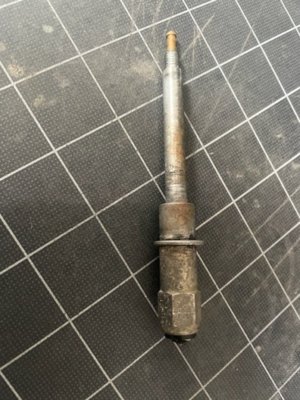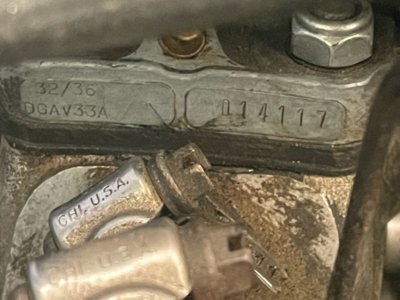ECA90049
Active Member
The metal clip on my idle valve (solenoid) has broken off. So I tried soldering another clip back onto the idle valve. But when the car heated up, it melted off the idle valve. So does anybody have any other ideas on how I can get this idle valve connected again? Been all over the internet looking for another one but no luck. So I'm going to keep trying to find some way to make it work. Any help or ideas are welcome. I've attached photos of idle valve and carb info. Thanks, E


